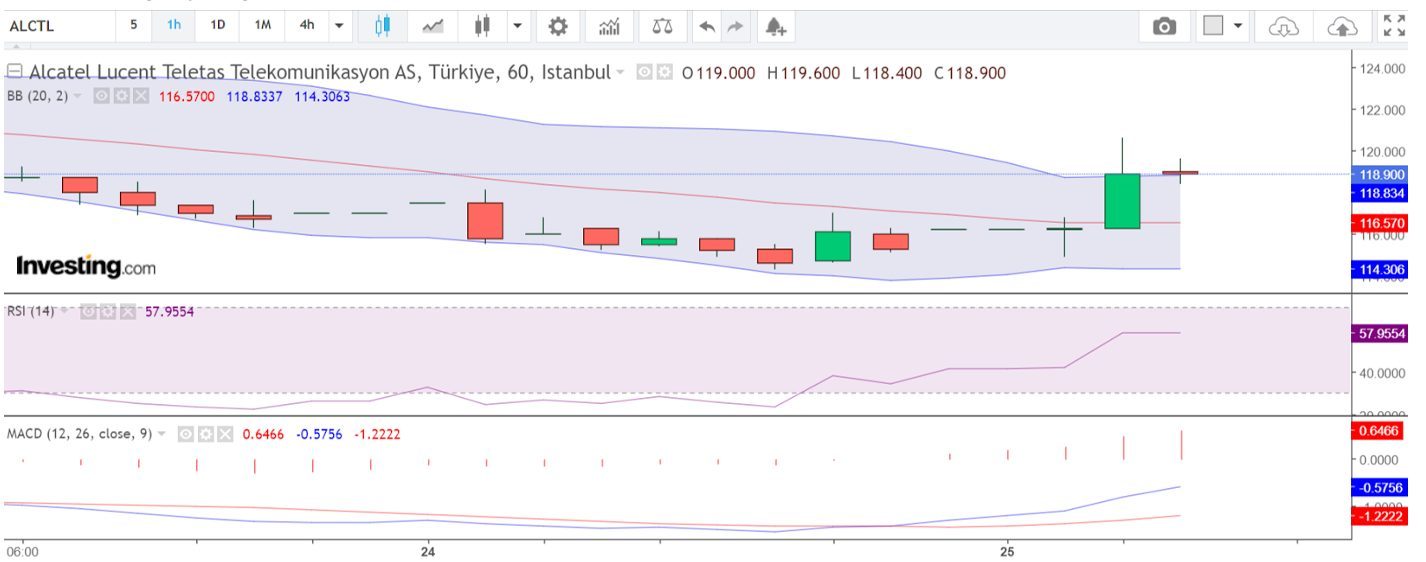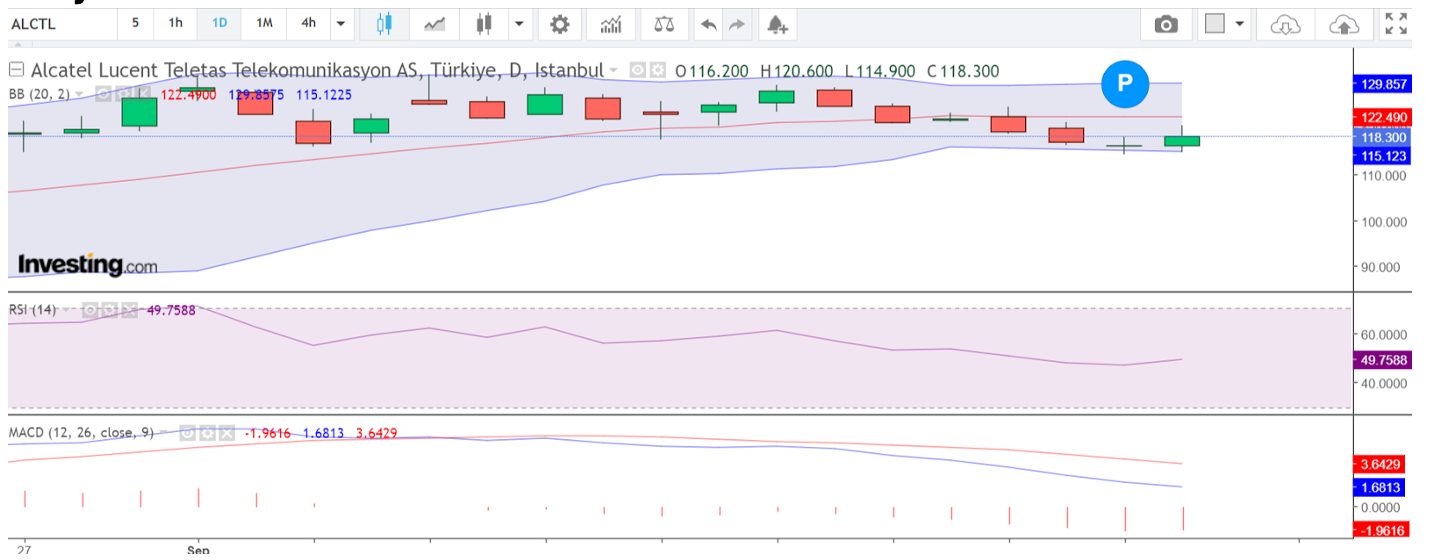CFD Trading in Turkey



Contracts for difference (CFDs) have gained popularity in Turkey, providing a financial instrument to trade domestic, European, Asian and global financial markets.
CFDs became officially available to Turkish retail investors in 2011 through the country’s regulations on derivative financial instruments, with subsequent rules introduced to curb excessive losses, notably leverage limits.
Want to start CFD trading in Turkey? This beginner’s guide will get you going.
Quick Introduction
- CFDs allow you to profit from rising and falling prices across various financial assets, like stocks, indices, commodities, and currencies, without owning the underlying asset.
- You enter into a contract with a broker to exchange the difference in the price from when the position is opened and closed, going long (buying) if you think the price will rise and short (selling) if you think it will fall.
- Leverage allows CFD traders to control larger positions with smaller capital. The Capital Markets Board of Turkey sets leverage limits to minimize the risks associated with leveraged trading, capped at 1:10.
Best CFD Brokers in Turkey
Through hands-on investigations, we've narrowed it down to these 4 firms as the best for CFD traders in Turkey:
How CFD Trading Works
As a CFD trader, your goal is to predict whether the price of an asset – such as a stock index, currency pair, or commodity – will rise or fall.
One of the major attractions of CFDs is leverage. Leverage allows you to control larger positions with a smaller amount of capital, referred to as the margin. However, while leverage amplifies your potential gains, it can also magnify your losses, making risk management crucial.
Let’s say you believe Turkey’s benchmark index, the BIST 100, trading at 9,320, will increase. You enter a CFD buy position with 1:10 leverage. If each contract is valued at TRY 93,200, and your broker requires a 10% margin, your margin requirement for 10 contracts would be TRY 93,200 (TRY 93,200 per contract x 10 contracts x 10%).
If the BIST 100 rises to 9,820, the index would have increased by 500 points, translating into a profit of TRY 5,000 per contract. Closing your position would yield a total profit of TRY 50,000 (10 contracts x TRY 5,000), excluding broker fees.
Conversely, if the index falls to 8,820, it would decrease by 500 points, causing a loss of TRY 5,000 per contract. In this scenario, your total loss would be TRY 50,000 (10 contracts x TRY 5,000), highlighting the risks associated with leveraged trading – both gains and losses are multiplied.
Before jumping into live CFD trading, use a demo account to practice strategies and build confidence.
In Turkey’s fast-moving markets, especially where factors like inflation, interest rates, and political events can affect volatility, managing your risk carefully is crucial.Setting clear rules on how much of your account you are willing to risk per trade will help protect your capital in both high and low volatility periods.
What Can I Trade As A CFD Trader In Turkey?
CFD trading in Turkey offers access to both local and global markets:
- Stock CFDs – Trade Turkish companies like Ereğli Demir ve Çelik Fabrikaları (Erdemir) and Türk Hava Yolları (Turkish Airlines) without owning the shares.
- Index CFDs – Speculate on the BIST 100, Turkey’s benchmark index, or major global indices like the S&P 500, DAX 40, and FTSE 100.
- Forex CFDs – Trade currency pairs involving the Turkish lira, such as USD/TRY, EUR/USD, and USD/JPY, to capitalize on exchange rate movements.
- Commodity CFDs – Access commodities like gold, oil, and agricultural products, which are integral to Turkey’s economy.
- Crypto CFDs – Trade popular cryptocurrencies like Bitcoin and Ethereum without owning the underlying coins.
Is CFD Trading Legal In Turkey?
CFD trading is legal in Turkey and regulated by the Capital Markets Board of Turkey (Sermaye Piyasası Kurulu, SPK), a ‘yellow tier’ body under DayTrading.com’s Regulation & Trust Rating.
The SPK licences brokers who offer CFD products to Turkish residents to ensure they meet security and financial stability standards.
Notably, the SPK implements leverage limits to protect traders from undue risks. The maximum leverage for CFD trading in Turkey is capped at 1:10, meaning you can control a position up to 10 times the amount of your initial investment. This limit is lower than in many other countries, where leverage can reach 1:50 or more.
The SPK also sets minimum deposit requirements for opening CFD trading accounts, around 50,000 TRY, ensuring traders have enough capital to manage the risks of leveraged trading.
Providers should also maintain segregated accounts for client funds and display disclosure statements informing traders of the high risks of dealing with CFDs.
Is CFD Trading Taxed In Turkey?
CFD trading is taxed in Turkey with profits generally considered capital gains. The capital gains tax applies to the net profit after subtracting losses and allowable expenses from trading activities.
The tax rate on capital gains can vary depending on your overall income level and other factors, so it’s essential to consult Turkish tax authorities or a tax advisor for the most up-to-date information.
In some cases, if you are trading with an SPK-regulated broker, a withholding tax may be applied automatically to CFD profits. The broker typically deducts this tax from the source and is handed over to the tax authorities.
If you trade CFDs with a foreign or offshore broker not regulated by the Capital Markets Board of Turkey (SPK), you must still report your profits and pay taxes in Turkey.
Example Trade
Let’s walk through a detailed CFD trade I made on a Turkish stock to show you how it all works in practice.
Background
The Borsa İstanbul is Turkey’s sole exchange, combining the former Istanbul Stock Exchange, the Istanbul Gold Exchange, and the Derivatives Exchange under one umbrella.
For this example, I’m trading a familiar brand to many European consumers. Alcatel Lucent Teletas Telekomünikasyon A.S. trades on the Borsa Istanbul, producing and selling telecom equipment in Turkey, Finland, and internationally.
The company operates in two segments: Cloud and Network Services and Network Infrastructures.
Fundamental Analysis
When trading stock CFDs, the fundamental analysis you engage in differs entirely from forex analysis. You need to concentrate on metrics specific to the listed company to see if you can uncover anything other market participants may have missed to support your bullish or bearish position.
At the time of the trade:
- ALCTL had a market cap of $4.62b
- The 52WK price range was 68.7 – 164.5
- The latest revenue was $3.23b, more than double the 2021 revenue
- Despite recently registering a slight net loss of $20m, I believed the company was on firm ground, and the upside potential was significant. That’s why I’m long this stock
Technical Analysis
I favour using two timeframes on my charting package:
- A lower time frame like the 1HR to determine the day’s price action, and
- A higher timeframe like D1 to establish a medium-term trend
By analyzing these two timeframes, I can see if there’s a relationship to support my decision.
1HR Timeframe
I use Heikin Ashi (HA) bars/candlesticks to identify price action. I prefer HA because of the smooth patterns produced by several candles.
I also use three distinct technical indicators: Bollinger Bands, Moving Average Crossover Divergence (MACD) and Relative Strength Index (RSI) to support my decisions.
With this combination of oscillators and moving averages, I can usually establish momentum, trends, volatility, entries, oversold/overbought conditions, and entries/exits.

The stock’s price traded in a range, as evidenced by the ranging bars followed by the Doji. Then, during the morning session, the price began to rise.
- The HA candle wick pierced the upper band of the BBs while rising over the 20EMA
- The RSI trended above the median 50 reading but still short of the 70 overbought level
- The moving averages of the MACD had crossed, indicating a significant change in sentiment from bearish to bullish
Daily Timeframe
The previous day’s Doji indicated indecision and a potential trend reversal. It was followed by a bullish candle that developed during the morning session.
The RSI was short of the median 50 reading, but the upturn suggests an increase in volatility. The Bollinger Bands had begun to widen, and the HA bar wick was close to piercing the 20 EMA.

My CFD account is usually capitalized at €15,000, and I’m risking 1% of my capital on this trade, €150. If I traded through a Turkish broker using the 1:10 maximum leverage allowed by SPK, I’d be controlling the equivalent of €1,500 in this trade.
But I’m aware that leverage is a double-edged sword, so I always trade with a stop-loss order and limit my risk per trade to 1% of my available capital. When I lose a trade, I don’t ruminate on it; losing 1% is easily recoverable.
The advantages of CFD trading are worth repeating; I don’t have to commit thousands of euros to buying and holding the actual shares to make this trade.I’m speculating about the price movement only, and with CFDs, I can trade long and short.
Following my analysis, I entered the market long, and the deal ticket contained the following parameters.
- Market order: 118.990
- Stop loss order: 113.000
- Profit limit order: 128.000
I’m prepared to hold this trade over, depending on market conditions.
Bottom Line
CFD trading in Turkey allows investors to participate in global markets.
Regulated by the Capital Markets Board of Turkey (SPK), the CFD market is well-structured, with rules to protect traders from excessive risk, such as strict leverage caps of 1:10.
With a proper approach to research, strategy, and timing, mainly focusing on high-liquidity trading sessions, CFD trading in Turkey can be a viable option for retail investors seeking to diversify their portfolios and capitalize on global market movements.
To get started, turn to DayTrading.com’s choice of the top-rated CFD day trading platforms.
Recommended Reading
Article Sources
- Capital Markets Board of Turkey (Sermaye Piyasası Kurulu, SPK)
- Turkish Tax Authority
- Borsa İstanbul
- Alcatel Lucent Teletas Telekomünikasyon A.S.
The writing and editorial team at DayTrading.com use credible sources to support their work. These include government agencies, white papers, research institutes, and engagement with industry professionals. Content is written free from bias and is fact-checked where appropriate. Learn more about why you can trust DayTrading.com



